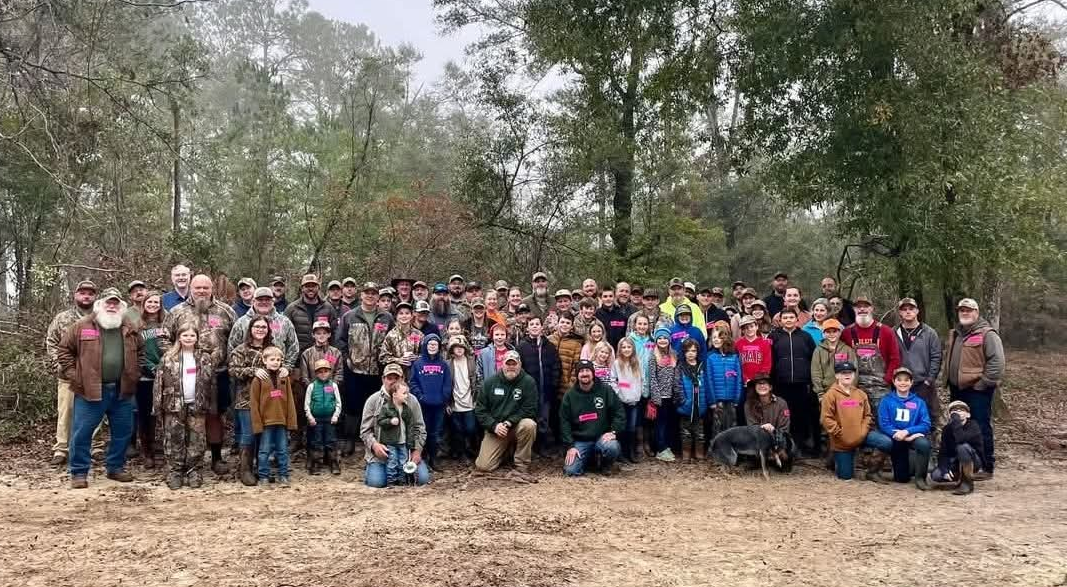The Georgia Trappers Association is gearing up for its 10th Annual Youth Trapping Field Trials, and excitement is in the air! This event, open to young trappers ages 4 to 15, is the largest of its kind in the United States. It’s not just about learning how to trap; it’s about building character, self-discipline, and a lifelong connection to the outdoors. Let’s dive into why events like this are so important for kids and the future of outdoor traditions.
A Hands-On Way to Build Character
In today’s fast-paced, tech-heavy world, kids need experiences that challenge them physically and mentally. Youth trapping trials offer just that. When a child sets a trap, checks it, and learns to do so responsibly, they gain a sense of achievement. This builds self-confidence and teaches them the value of hard work. These are life lessons that will stick with them long after the event is over.
Moreover, trapping requires patience and perseverance. A young trapper quickly learns that success doesn’t come easily. Sometimes, they may have to try several times before they get it right. This kind of persistence is a skill they can apply to school, sports, and other challenges in life. They also develop the resilience to endure frustration and adapt to hardships, understanding that persistence pays off.
Learning Self-Discipline in the Outdoors
Trapping is not just about catching animals; it’s about doing so ethically and responsibly. Young trappers are taught to respect wildlife, follow regulations, and practice safety at all times. This instills a sense of discipline that’s hard to find in other activities.
In addition, participants must pay close attention to details. Setting a trap involves careful preparation, from choosing the right location to ensuring it’s properly secured. These small but essential steps teach kids to focus, plan ahead, and think critically—skills they’ll need throughout their lives.
Understanding the Ecosystem
One of the most valuable lessons trapping teaches young people is how everything in nature is connected. Participants learn about the balance of ecosystems and the roles various species play. For example, controlling certain populations helps maintain a healthy environment for others to thrive. This hands-on education fosters a deep appreciation for nature and an understanding of human responsibility in protecting it.
Kids who gain this knowledge often carry it with them, becoming advocates for conservation and sustainable practices. They learn that their actions can have a positive impact on the world around them, reinforcing the importance of stewardship.
Preserving the Heritage of the Outdoors
Trapping is more than a skill; it’s a tradition that has been passed down for generations. Events like the Youth Trapping Field Trials ensure that this heritage doesn’t fade away. By involving kids at a young age, the Georgia Trappers Association is helping to keep the outdoor way of life alive.
Kids who participate in these trials often develop a deep appreciation for nature. They learn how ecosystems work and the role humans play in maintaining balance. This understanding fosters a lifelong respect for the environment and a desire to protect it for future generations.
A Community Built Around Shared Experiences
One of the best parts of the Youth Trapping Field Trials is the sense of community it creates. Families come together to support their young trappers, and participants form friendships with others who share their interests. These connections often lead to mentorships, where experienced trappers pass down their knowledge and stories to the next generation.
The event also brings together people from different backgrounds, united by their love for the outdoors. This creates a welcoming and inclusive environment where everyone feels they belong.
Why This Matters More Than Ever
As fewer young people engage with outdoor activities, events like the Youth Trapping Field Trials are more important than ever. They provide a gateway for kids to step away from screens and experience the natural world. More importantly, they give kids the tools and values they need to succeed in life, from responsibility to resilience.
By participating, young trappers aren’t just learning a skill—they’re becoming part of a tradition that values respect, hard work, and a love for the outdoors. These experiences shape who they are and who they will become, ensuring that the heritage of trapping and outdoor living remains strong for generations to come.
Final Thoughts
For members of the Maryland Fur Trappers Association, the Georgia Trappers Association’s Youth Trapping Field Trials offer a remarkable blueprint for success. Imagine the possibilities if Maryland could host a similar program, bringing the same benefits to our state’s youth. Such an event could teach our children valuable skills, from building perseverance and self-discipline to understanding how ecosystems work and how everything in nature is connected.
What can we do as an organization to make this a reality? Could we adapt some of Georgia’s ideas and create an event that reflects Maryland’s unique trapping heritage? By investing in a program like this, we can ensure the future of our traditions while helping the next generation develop a strong work ethic and an appreciation for the outdoors. Let’s start the conversation and work together to make it happen!

